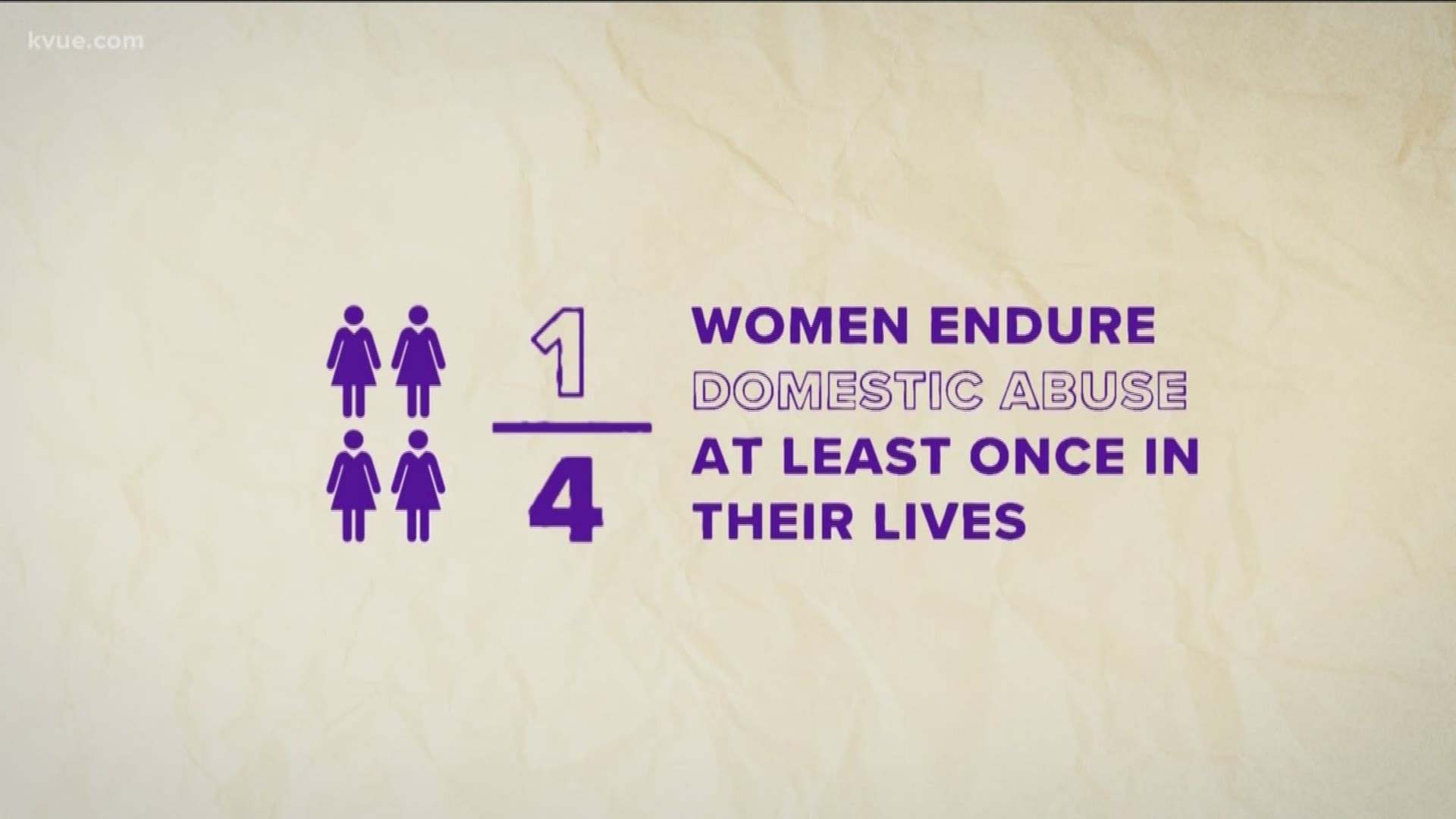AUSTIN — One in four women endure domestic violence at least once in their lives. These women might be people you know -- or maybe you're a victim, too.
Sometimes, that abuse can turn deadly.
Since the beginning of 2018, at least four women in Austin have died at the hands of their partners, according to police. Their deaths make up nearly 14 percent of the city's murders this year.
Makani Couk believes she's one of the lucky ones. Her ex-boyfriends didn't kill her, but there were times she thought they would.
"You get this tunnel vision and trying to think of how to get away," Couk said. "Where are your keys in the room? How do you even get out of that? When the person's twice your size, you don't know how you're going to make it."

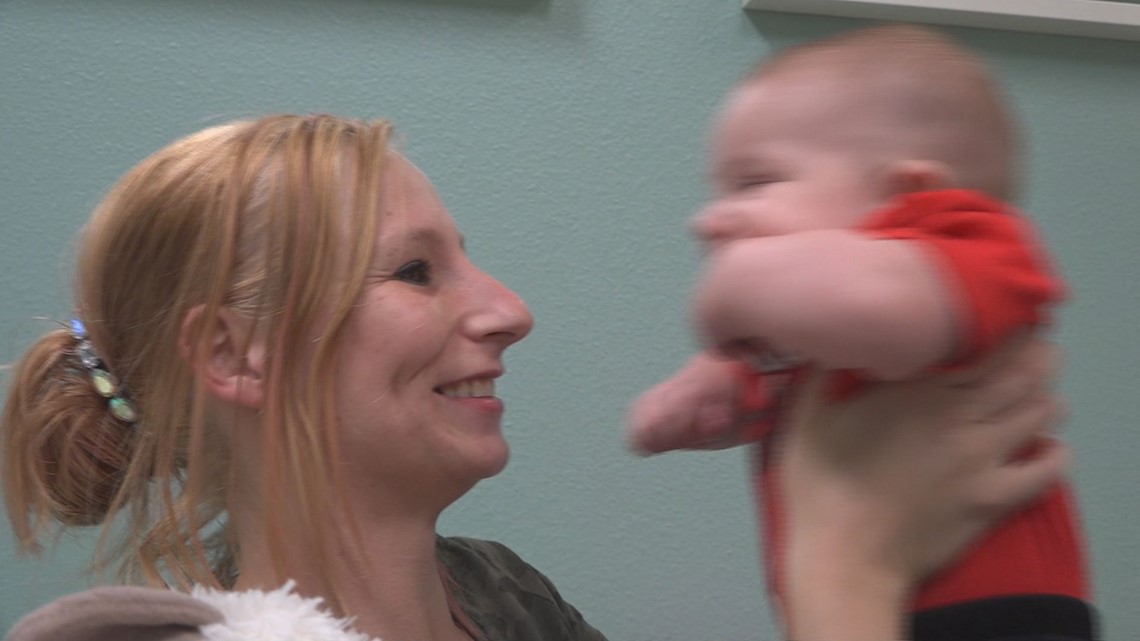
Today, Couk has a lot of reasons to smile.
"I have a whole, complete life; a healthy relationship; and three beautiful kids. And it's totally worth it," she said.
But it took her a long time to get her smile back.
"I have to deal with the typical nightmares, flashbacks. Even in a healthy relationship, if we start arguing, my body will go straight into 'fight or flight,'" Couk said.
Couk's first run-in with abuse began when she was 14-years-old. She said a 27-year-old man who liked to hang out at the local skating rink tried to groom her.

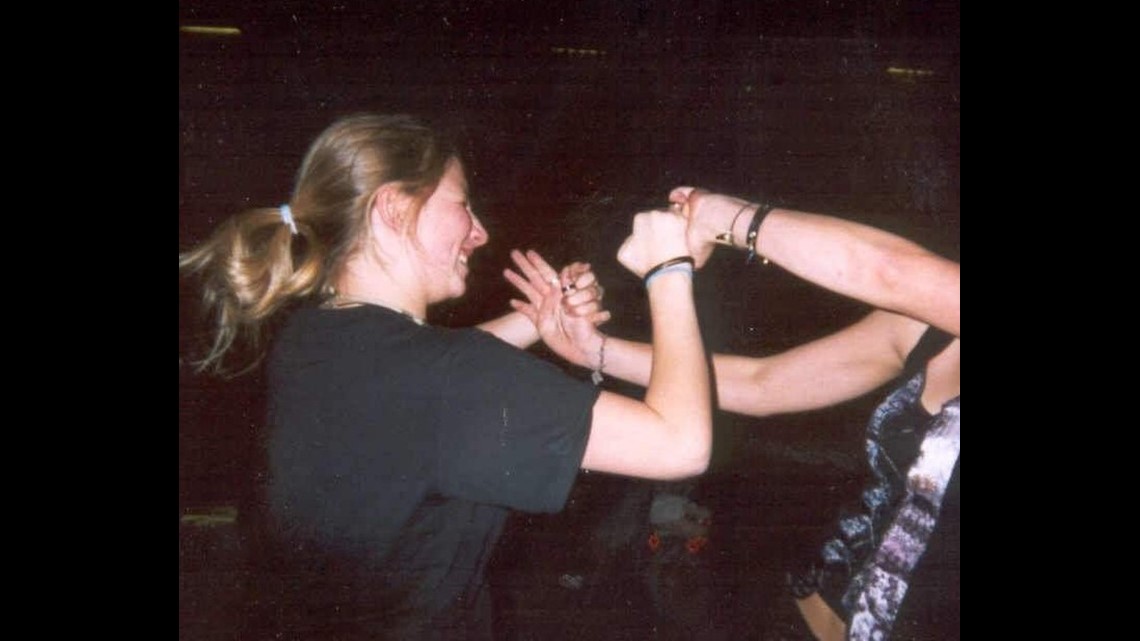
"He learned how to manipulate me into doing things I wouldn't necessarily do and used a lot of emotional and sometimes physical abuse to get me to cooperate with whatever it was," she said.
Her adult relationships haven't been any easier.
"One time, he had me pinned on the floor, in front of the fire place, with his forearm against my throat," she said, recalling an ex-boyfriend. "I'm not sure how long I was down there, but I did everything I could to get him off."
She ended that relationship after about five years.
"I guess the final straw was when he hit me in the face, and I hit the floor and he punched the back of my head like 20 times and then just ran out the door," Couk said. "The next day, I changed the locks. I moved as quickly as I could, destroyed my credit in the process. Broken lease, damaged apartment, holes in the wall, all of that."
Her next boyfriend was abusive physically -- and financially.
"He would get up early morning and withdraw all my money, except for $20, and then leave and say he was paying the bills or whatever," Couk said. "There's like, a lot of financial abuse that kept me stuck."
Each time, it got harder to leave. Her credit was ruined, and she had a child to support.
At one point, she said she ended up homeless.
"We ended up in a tent and all of that," she said.
Eventually, she managed to get a bed at the SAFE Alliance's emergency shelter.
"We cried so much just to have a toilet and a shower," Couk said.
Getting there wasn't easy.
"For people who end up coming to our shelter, they literally have to become homeless with their families. That's a scary thing," Melinda Cantu, SAFE's Vice President of Housing, Healing, and Support services, said.

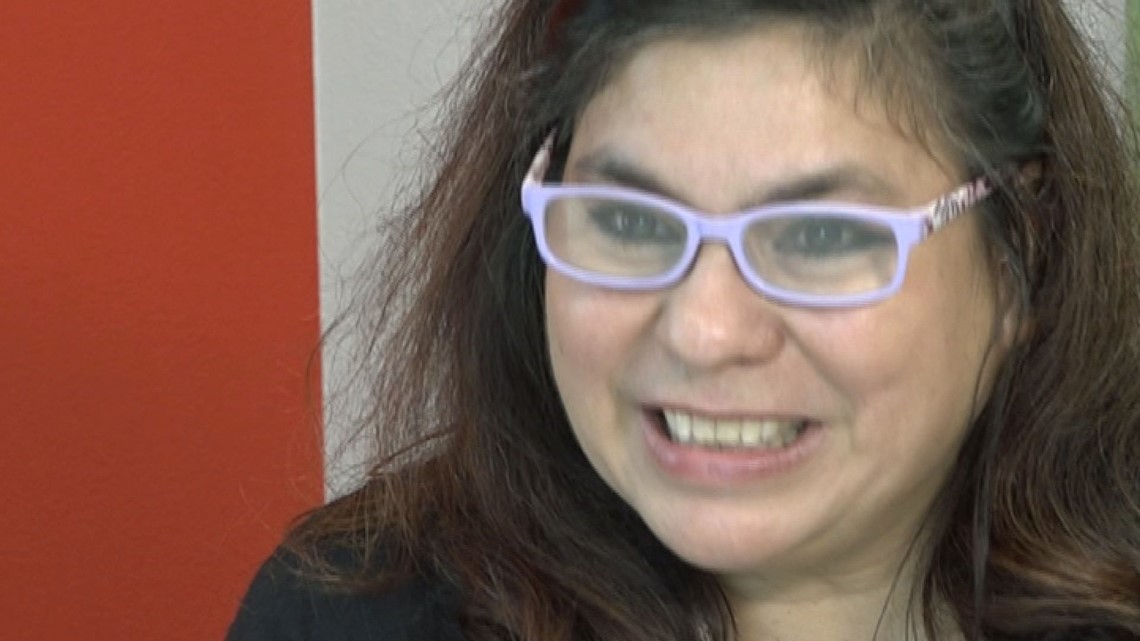
What Couk went through is not uncommon.
"Any given week, we have new people coming in to all of our program services," Cantu said. "Last year, I think there were about 544 folks who were getting services just on shelter."
Cantu said it's all about power and control when it comes to abuse relationships.
"When people are trying to leave those relationships, the level of risk goes up really high because they're losing that control," she said. "That's the part when we talk about that can be the most dangerous time to you, to your kids, to your pets, to your extended family."
| Year | Total Murders | Intimate Partner | Percent of Total |
| 2005 | 26 | 5 | 19.2% |
| 2006 | 20 | 3 | 15% |
| 2007 | 30 | 0 | 0% |
| 2008 | 23 | 4 | 17.3% |
| 2009 | 22 | 1 | 4% |
| 2010 | 38 | 7 | 18.4% |
| 2011 | 27 | 2 | 7.4% |
| 2012 | 33 | 7 | 21.2% |
| 2013 | 25 | 5 | 20% |
| 2014 | 31 | 2 | 6.4% |
| 2015 | 23 | 4 | 17.3% |
| 2016 | 39 | 2 | 5.1% |
| 2017 | 25 | 2 | 8% |
| 2018 | 28 | 4 | 14.2% |
Austin police records show an average of more than 6,000 domestic assaults have been reported every year since 2013. Since 2005, a total of 48 women have been killed by their partners -- about 12 percent of all murders during that timeframe.
"Intimate partner homicide is by far the most prevalent when somebody just broke up with someone," Adam Klaybor, a counselor with Expect Respect, said. "'They're leaving. I need to grab on. And if they really leave me, I'm so angry, I can't handle it.' And then things turn south in a hurry."

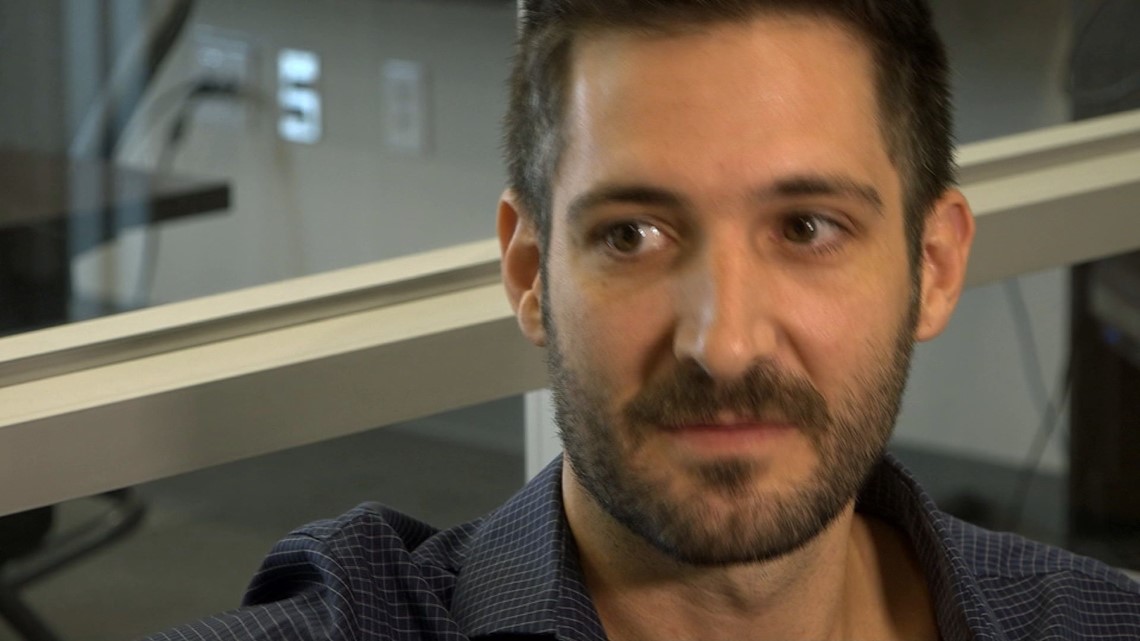
Klaybor is part of a program whose members are trying to break the cycle of domestic violence by counseling boys who may be at risk of violent behavior.
"If they've seen it or experienced it, they're much more likely to do that to other people," Klaybor said.
Klaybor speaks at Austin Independent School District schools, meets with young guys and forms support groups. The boys often suffer from anger issues, loneliness and isolation.
"We're trying to get to them before they're really dating because if we can talk about dating, what it looks like, what is healthy, what's not healthy, what does consent mean, what are boundaries, then they're already thinking about it," he said. "Nobody who grows up in an abusive household can even identify a healthy relationship."
Klaybor believes it's acceptable for men to show their emotions through anger, and that's what causes a lot of violence.
"The most concerning things I've seen from guys is objectifying women, thinking they're less than and then trying to solve their problems or their anger through violence and getting really controlling because, usually, they don't have anybody else they can rely on, so that's their one person," he said.
"There's a saying, 'Guys act out. Women act in.' It's kind-of an explosive...'I can't say I'm sad, so I'll just punch a wall because that looks strong.'"
While he understands why some men may act out violently, Klaybor is not making any excuses.
"I don't forgive the actions of rape, murder, abuse, assault. Any of that. I don't forgive it," Klaybor said. "My point, and especially working from a preventative program, is that if we can get help to people that are at risk for violent behavior before it occurs, then we can prevent a lot of people from getting hurt."

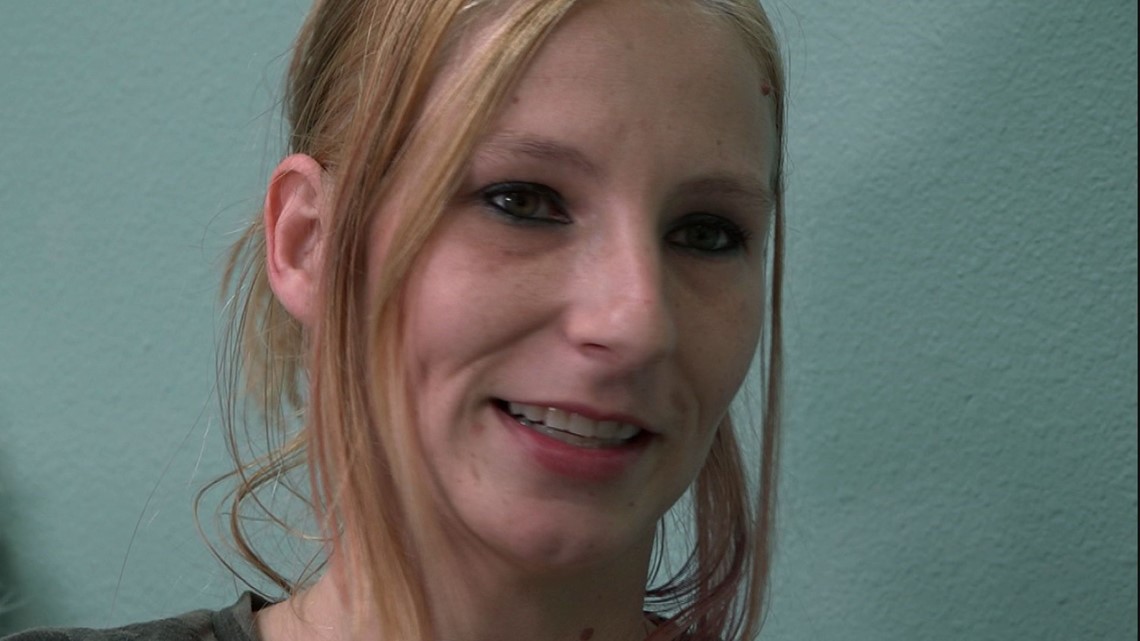
Couk believes had the men in her life learned at a young age what abuse looks like, things may have turned out differently.
"They say 'the grass is greener on the other side.' I thought the grass was just as brown on the other side. I really didn't think I'd be able to get away," she said. "It really broke my brain."
But Couk, now happily married, hopes sharing her story will give someone else the courage to seek help.
"Just now, I'm realizing I'm worth it," she said.
If you or someone you know is hurt or in danger, call 9-1-1. You can also reach out to the 24-hour SAFE-line at (512) 267-SAFE.

